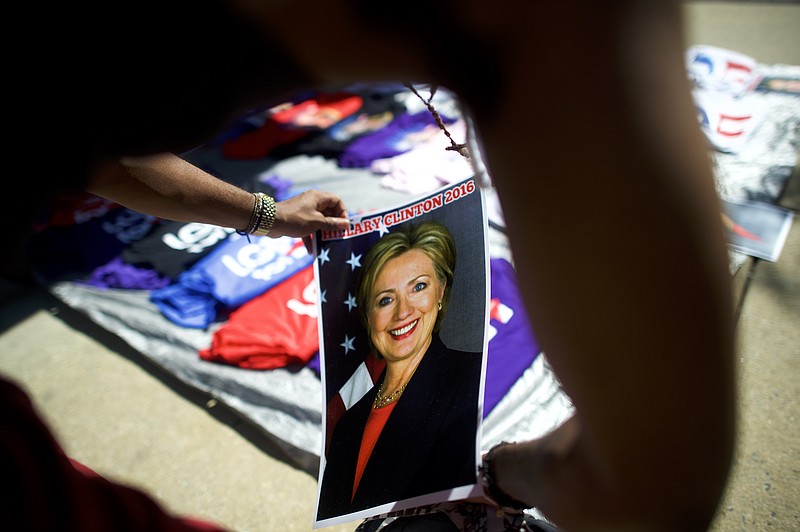One way to learn a person's political affiliation really quick is to throw the following line at them and wait for their response: "Russian computer hackers were heavily involved in this year's presidential election."
Someone with Democratic sympathies will likely agree, possibly emphatically, while a Republican sympathizer will probably shrug it off.
Either one, though, could hardly deny the merits of that statement, as numerous reports have emerged over the past few weeks confirming Moscow's connection to the email hacking that plagued Democrats like Debbie Wasserman Schultz, Donna Brazile, John Podesta and ultimately Hillary Clinton throughout her campaign.
Quick note: For an an easily digestible account of the hacking, read Thomas Rid's article "How Russia pulled off the biggest election hack in U.S. history" in this month's Esquire magazine (yes, I said Esquire).
Did the information learned from those hacks actually tip the scales in November? That's up for argument. But one thing is for sure, that hacking wasn't a single-election phenomenon. Chances are we'll see more of it in the future.
Why? Because it proved too successful for Russian objectives.
No, I don't mean whether Vladimir Putin's favorite candidate won. I'm referring to the fact that a primary aim of Russian international mischief-making was realized during an American election: destabilizing faith in Western institutions. Log onto social media right now, look for conversations about election rigging and recounts, and you'll see what I mean.
This, however, is not an American novelty. While many voters here are questioning the value of the Electoral College, Putin has been working for years to undercut NATO and the European Union in hopes of fracturing the European fraternity that has frustrated him for, well, perhaps the majority of his life if we go back to his Soviet days.
The most perplexing occurrence of this whole saga took place when our now president-elect proclaimed from the campaign trail that "I love WikiLeaks," the publisher of near countless hijacked government and political documents that, in many ways, operates as a Russian subsidiary.
Yet while Donald Trump's affinity for WikiLeaks is rooted in the fact that the site helped hurt Hillary Clinton's bid for the White House, there is plenty of reason the right should be given pause by the whole affair.
Let's not fool ourselves into thinking that Putin and his proxies simply like Trump more than Clinton, that the Kremlin's election involvement was based on some sort of foreign affairs popularity contest. That's not how Putin operates. Russia's leader sees the world as a game of chess, and he's constantly looking for ways to better his position on the board. And low-hanging fruit, like email espionage, proves very helpful.
In a recent National Review article, national security expert Adam Klein explains that when it comes to cyberattacks "the email accounts of aging politicos are the ultimate soft targets." Indeed Democratic bigwig John Podesta was easily fooled into logging into a lookalike Gmail account. Once he unwittingly logged in with his username and password, hackers had full access to his real account.
So if "aging politicos" are easy targets, then I'm assuming aging reality television stars are as well.
Let's be real. Putin has no brotherly love for our next president. He's a chess piece, and if Moscow doesn't get favorable treatment from the Trump administration, who's to say the RNC won't get the same treatment the DNC did this go round.
It's easy to be blasé about all this when it hasn't hurt your team. But conservatives need be aware that the havoc unleashed across the political aisle can just as easily be turned on them.
Contact David Allen Martin at davidallenmartin423@gmail.com and follow him on Twitter @DMart423.

